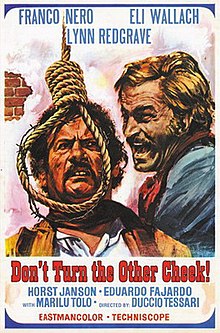
Francisco "Pancho" Villa was a Mexican revolutionary and prominent figure in the Mexican Revolution. He was a key figure in the revolutionary movement that forced out President Porfirio Díaz and brought Francisco I. Madero to power in 1911. When Madero was ousted by a coup led by General Victoriano Huerta in February 1913, Villa joined the anti-Huerta forces in the Constitutionalist Army led by Venustiano Carranza. After the defeat and exile of Huerta in July 1914, Villa broke with Carranza. Villa dominated the meeting of revolutionary generals that excluded Carranza and helped create a coalition government. Emiliano Zapata and Villa became formal allies in this period. Like Zapata, Villa was strongly in favor of land reform, but did not implement it when he had power. At the height of his power and popularity in late 1914 and early 1915, the U.S. considered recognizing Villa as Mexico's legitimate authority.

Harry "Pete" Pierpont was a Prohibition era gangster, convicted murderer and bank robber. He was a friend and mentor to John Dillinger.

Ace High is a 1968 Italian Spaghetti Western film directed and written by Giuseppe Colizzi and starring Terence Hill, Bud Spencer and Eli Wallach. The film is the second in a trilogy that started with God Forgives... I Don't! and ended with Boot Hill.

Navajo Joe is a 1966 spaghetti Western film directed by Sergio Corbucci and starring Burt Reynolds as the titular Navajo Indian who opposes a group of bandits responsible for killing his tribe.
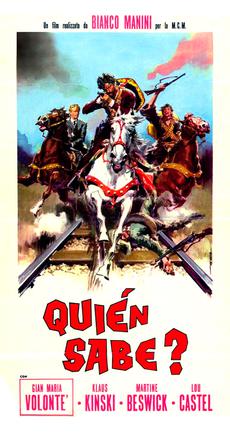
A Bullet for the General, also known as El Chucho Quién Sabe?, is a 1966 Italian Zapata Western film directed by Damiano Damiani and starring Gian Maria Volonté, Lou Castel, Klaus Kinski and Martine Beswick. It tells the story of El Chuncho, a bandit and guerrilla leader during the Mexican Revolution, and Bill Tate/El Niño, a counter-revolutionary contract killer who infiltrates his gang and befriends Chuncho. The story centers on the way this relationship changes everything for Chuncho, who discovers the hard way that a social revolution is more important than mere money.

Any Gun Can Play is a 1967 spaghetti Western starring Gilbert Roland, Edd Byrnes and George Hilton. The film is directed by Enzo G. Castellari. The film revolves around a group of cowboys in search of gold, leading to double-crosses as they continually change allegiances and gain the upper hand, only to be thwarted by fellow outlaws, mysterious insurance investigators, and each other.

Compañeros is a 1970 Italian/Spanish/French international co-production Zapata Western buddy comedy film directed by Sergio Corbucci. The film stars Franco Nero, Tomas Milian, Jack Palance and Fernando Rey. The soundtrack for the film was written by Ennio Morricone.

Villa Rides is a 1968 American Technicolor Western war film in Panavision directed by Buzz Kulik and starring Yul Brynner as Mexican revolutionary Pancho Villa and Robert Mitchum as an American adventurer and pilot of fortune. The screenplay is based on the biography by William Douglas Lansford. The supporting cast includes Charles Bronson as Fierro, Herbert Lom as Huerta and Alexander Knox as Madero.
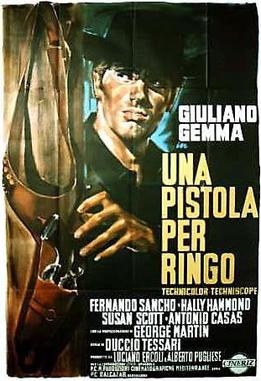
A Pistol for Ringo is a 1965 Spaghetti Western, a joint Italian and Spanish production. Originally written and directed by Duccio Tessari, the film's success led to a follow-up, The Return of Ringo, later that year, which, in spite of sharing the same name for the titular character, is not a sequel to this film and deals with an entirely new character and storyline.

Silver Saddle is a 1978 spaghetti Western. It is the third and final western directed by Lucio Fulci and one of the last spaghetti Westerns to be produced by a European studio. The film was based on an original story written by screenwriter Adriano Bolzoni and directed by Fulci for the Italian studio Rizzoli Film Productions.

The First Battle of Ciudad Juárez took place in April and May 1911 between federal forces loyal to President Porfirio Díaz and rebel forces of Francisco Madero, during the Mexican Revolution. Pascual Orozco and Pancho Villa commanded Madero's army, which besieged Ciudad Juárez, Chihuahua. After two days of fighting the city's garrison surrendered and Orozco and Villa took control of the town. The fall of Ciudad Juárez to Madero, combined with Emiliano Zapata's taking of Cuautla in Morelos, convinced Díaz that he could not hope to defeat the rebels. As a result, he agreed to the Treaty of Ciudad Juárez, resigned and went into exile in France, thus ending the initial stage of the Mexican Revolution.

Django is a fictional character who appears in a number of Spaghetti Western films. Originally played by Franco Nero in the 1966 Italian film of the same name by Sergio Corbucci, he has appeared in 31 films since then. Especially outside of the genre's home country Italy, mainly Germany, countless releases have been retitled in the wake of the original film's enormous success.
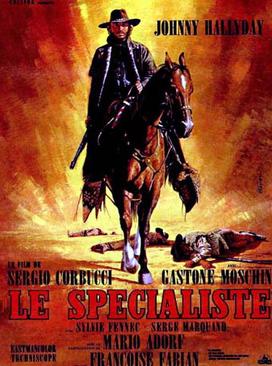
The Specialists is a 1969 Spaghetti Western co-written and directed by Sergio Corbucci. It was an international co-production between Italy, France and West Germany. Retrospective critics and scholars of Corbucci's Westerns have deemed The Specialists to be the final film in the director's "Mud and Blood" trilogy, which also includes Django (1966) and The Great Silence (1968).

Johnny Hamlet (Italian: Quella sporca storia nel West, lit. 'That Dirty Story in the West' is a 1968 Italian film directed by Enzo G. Castellari. The film is a Spaghetti Western version of William Shakespeare's tragedy Hamlet.
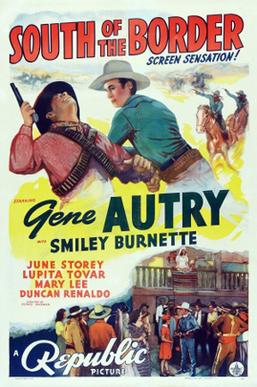
South of the Border is a 1939 Western film directed by George Sherman and starring Gene Autry, Smiley Burnette, and June Storey. Written by Betty Burbridge and Gerald Geraghty, based on a story by Dorrell and Stuart E. McGowan, the film is about a federal agent who is sent to Mexico to prevent foreign powers from gaining control of Mexican oil refineries and fomenting revolution among the Mexican people.
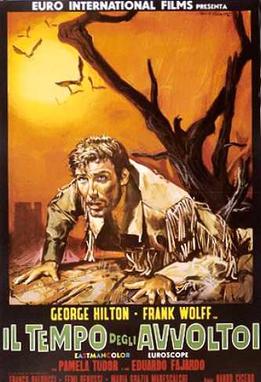
Il tempo degli avvoltoi is a 1967 Italian spaghetti Western film directed by Nando Cicero.
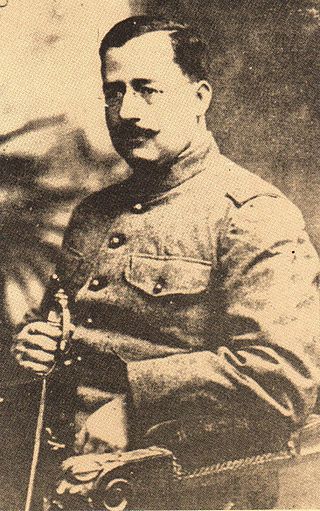
Salvador Alvarado Rubio was a general and politician during the Mexican Revolution. He served in the Constitutional Army under President Venustiano Carranza. Alvarado was the Governor of Yucatán from February 1915 to November, 1918, and Secretary of the Treasury under President de la Huerta. There is a Salvador Alvarado Municipality in the State of Sinaloa, where he was born, named in his honor.

Vengeance is a 1968 gothic horror Spaghetti Western film written and directed by Anthony Dawson. It starred Richard Harrison, Mariangela Giordano and Luciano Pigozzi.

Kill the Wicked! is a 1967 Italian Spaghetti Western film directed by Tanio Boccia and starring Larry Ward and Rod Dana.

The Phantom Stagecoach is a 1957 American Western film directed by Ray Nazarro and starring William Bishop, Kathleen Crowley, Richard Webb, Hugh Sanders, John Doucette, and Frank Ferguson. The film was released by Columbia Pictures on April 1, 1957.
